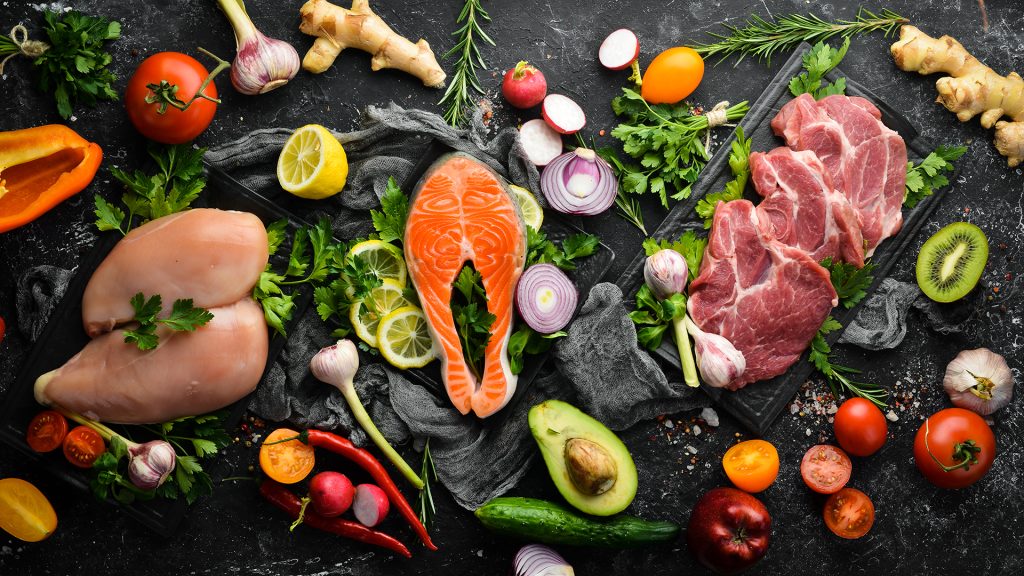Dr Stella Child, Senior Research Funding Advisor at non-profit thinktank the Good Food Institute Europe, explores precision fermentation and its potential to solve some of the biggest global food challenges.
An innovative application of long-established food production methods has the potential to diversify Europe’s protein supply, boost our food security, and help feed a rapidly growing population. Precision fermentation has been used for decades to produce rennet for cheesemaking, and common ingredients such as citric acid and collagen. European researchers and companies are now using the technique to produce proteins and other ingredients that deliver the familiar flavour and texture of foods like meat, eggs, and cheese without using animals. It’s also being used to develop alternatives to sustainable palm oil, chocolate and coffee, and even materials such as cotton.
What is precision fermentation?
Fermentation has been a cornerstone of food production for millennia, and precision fermentation builds on longstanding knowledge of how we can harness microorganisms to develop delicious and nutritious foods and ingredients.
Scientists give specific instructions to organisms such as yeasts, enabling them to produce molecules such as proteins, enzymes, or fats with incredible efficiency.
Similar to how traditional fermentation involves microorganisms turning sugars into alcohol, precision fermentation gives organisms like yeast the instructions to turn sugars into ingredients like animal fats or heme, which can bring the flavour of beef to plant-based meat.
The process gives the yeast biological instructions for how to convert simple sugars into the desired ingredient, in the same way it would turn sugar into alcohol during beer production.
The final ingredients can be used to bring the flavour and texture of meat, the binding properties of eggs, or the texture of cheese to otherwise plant-based products.
Why do we need it?
Recent global shocks and extreme weather events have highlighted the urgent need to strengthen the resilience of our supply chains. Meanwhile, global demand for protein is expected to double by 2050, yet research suggests that we must reduce our reliance on animal agriculture if we’re to have any hope of meeting our climate targets.
This is where new fermentation processes come in. They could help to provide people with the foods they love, but with a fraction of the climate emissions.
A recent environmental impact assessment of French company Verley’s precision fermentation milk protein, conducted in collaboration with independent experts from the French public research institute for agricultural science (INRAE), found that it caused 72% fewer emissions, and used 81% less water and 99% less land than cow’s milk.
Because ingredients made using precision fermentation need far less land than animal agriculture, research shows they could help enable up to 21% of European domestic farmland to be used to boost domestic food production.
 © shutterstock/Mosiahina Yulia
© shutterstock/Mosiahina Yulia
Diversifying our protein supply to include foods produced using precision fermentation could also deliver significant economic benefits. An assessment funded by the UK’s Foreign, Commonwealth and Development Office found that alternative proteins – which also include cultivated meat and plant-based foods – could add over €900bn to the global economy and create 10 million jobs by 2050.
Researchers are making exciting progress
Europe is well-positioned to reap the benefits. Our latest analysis has found that the number of European scientific studies examining precision fermentation and other fermentation technologies to develop sustainable foods has increased by 168% between 2020 and 2024, as more researchers become involved.
While fermentation remains much less mature than more developed areas such as plant-based meat and dairy, the field is advancing rapidly. The opening of new research centres focused on fermentation, such as the UK’s Microbial Foods Hub, Sweden’s Biotech Heights – a collaboration between Lund University and TetraPak – and CellAg Netherlands’ Biotechnology Fermentation Factory, supported by the Dutch Institute for Dairy Research (NIZO), are welcome developments.
We expect to see interesting findings capable of boosting innovation coming from these and other centres in the years to come, but researchers and startups working in this area are already making exciting progress.
Precision fermentation companies are reporting significant improvements to the titre – the concentration of fats, proteins, and other ingredients being produced from their fermentors and an important measure of the efficiency of the process and its potential to be scaled up.
Finland’s Onego Bio, which specialises in precision-fermentation-made eggs, last year announced that it can produce 120g of egg white per litre of fermentation tank capacity – around 50% higher than the amount previously reported for the specific microorganisms they work with.
Researchers like Professor Etske Bijl from Wageningen University and Research in the Netherlands are using precision fermentation to develop micelles – large protein clusters known as the ‘building blocks of dairy’ – in order to recreate the country’s famous Gouda cheese.
Meanwhile, Kari Koivuranta from the VTT Technical Research Centre of Finland is using the technique to develop lipids that will be molecularly identical to beef fat – a potentially game-changing addition to plant-based foods.
Recognition from governments
The potential benefits of fermentation are increasingly being recognised by European governments and public bodies.
Public funding for fermentation research has grown year-on-year by 77%, meaning European scientists exploring these approaches received more than €100m in 2024, further raising the prospect that researchers working in this area will publish an even greater volume of innovative findings in the near future.
The EU’s recent Strategy for European Life Sciences highlighted that advanced fermentation technology had ‘significant potential’ to develop a wide range of high-end products, such as sustainable food ingredients made using renewable raw materials with low environmental impact. However, it also stated that, while European startups and SMEs are driving innovation in these technologies, scaling up production is expensive and challenging. It proposed that the European Commission help support scale-up by developing public-private partnerships and organising an annual conference to boost collaboration and knowledge sharing. Other proposals included making additional funding available under the flagship Horizon Europe research programme into sustainable bioeconomy solutions, presenting further opportunities to scale up fermentation-made foods.
Consumers are ready
Foods made using precision fermentation have yet to reach European consumers, although regulators in both the UK and the EU are currently evaluating several applications to authorise them for sale.
Research we carried out along with Accenture last year suggests that around half of consumers in France, Germany, Spain, and the UK are already open to trying precision fermentation egg and dairy products.
With interest in this area growing, the UK’s Food Standards Agency (FSA) has now launched a one-year Innovation Research Programme to boost regulators’ knowledge of fermentation science. The programme, supported by £1.4m (€1.6m) of funding from the country’s Department for Science, Innovation and Technology, aims to ensure that the FSA is prepared for future innovations and that companies have a clearer understanding of how to apply for regulatory approval.
Need for scale-up facilities
Despite all these advancements, scaling precision fermentation production to make animal-free proteins affordable remains a significant challenge, primarily because Europe lacks sufficient large-scale fermentation facilities to scale up production.
To realise Europe’s potential as a global leader in fermentation and commercialise the findings of our growing network of scientists, governments and businesses need to invest in building the infrastructure needed to make foods made with precision fermentation affordable and available for everyone.
Please note, this article will also appear in the 24th edition of our quarterly publication.

